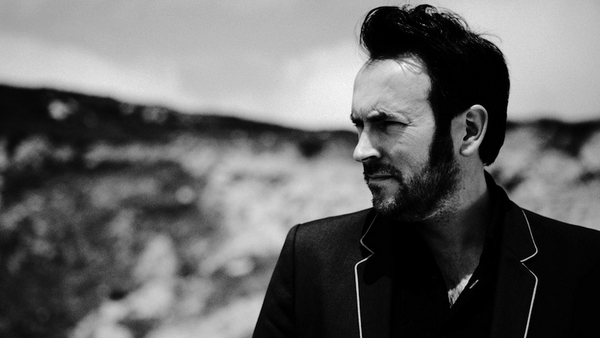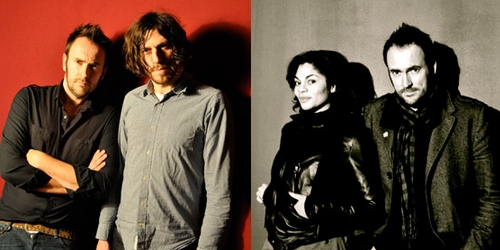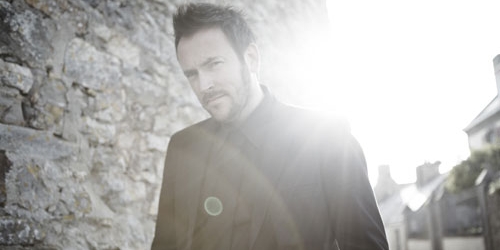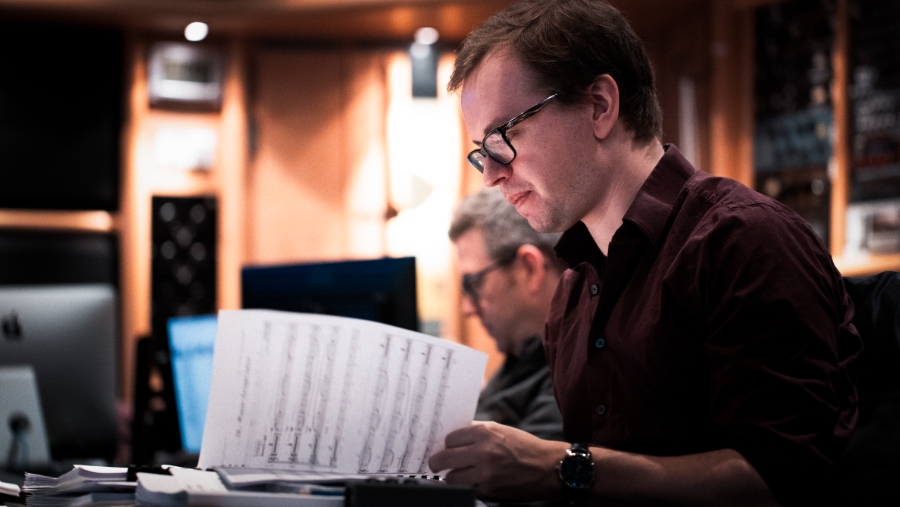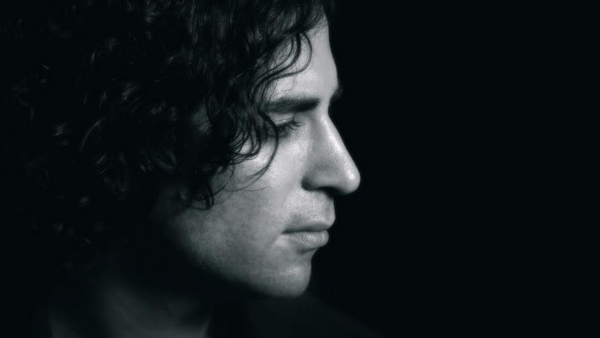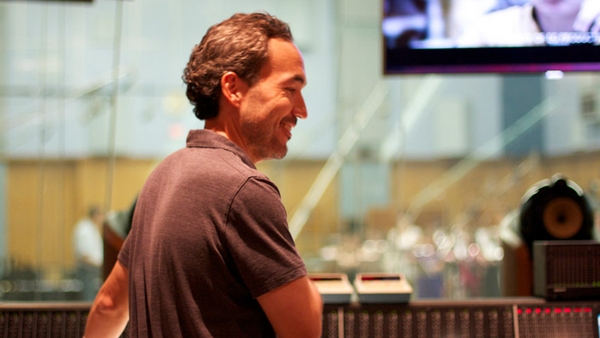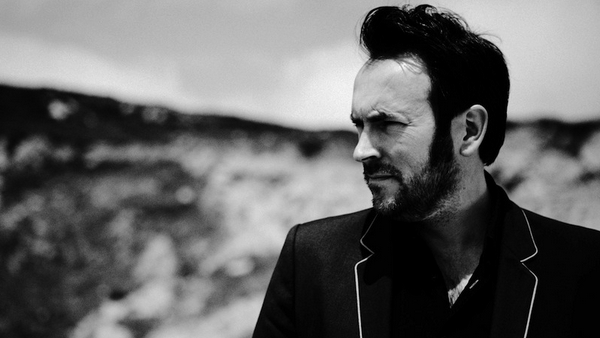 British composer, songwriter and multi-instrumentalist Robin Foster may draw inspiration from bands like Radiohead and composers like Ennio Morricone but really he has a style all his own. What he calls “cinematic post-rock” is a mesmerizing and dreamy mix of electronic loops, and airy synths that are driven by waves of guitars.
British composer, songwriter and multi-instrumentalist Robin Foster may draw inspiration from bands like Radiohead and composers like Ennio Morricone but really he has a style all his own. What he calls “cinematic post-rock” is a mesmerizing and dreamy mix of electronic loops, and airy synths that are driven by waves of guitars.
His close collaboration with Oscar nominated British writer/film director Sean Ellis has lead to soundtracks for prestigious global brand names such as Hugo Boss and Kenneth Cole and last year he composed the score to Ellis’ feature film, Metro Manila. The action thriller recently won the highly prestigious Audience World Dramatic award at this year’s Sundance Film Festival in January 2013 where it was met with rave reviews.
Upon completion of the Metro Manila score Robin began work on his third album ‘PenInsular’. Inspired by the natural beauty and isolation of Brittany’s Crozon peninsula (north-western France) and its beaches, Robin says the album perfectly captures the essence of this beautiful and isolated coast, his ‘postcard from the edge of the world’.
We at GoSeeTalk are big fans of Ellis thanks to his outstandingly original, witty and refreshing debut film Cashback. Likened to an early Danny Boyle, Ellis is continually trying out new narrative styles and manners of storytelling and Robin’s ethereal music perfectly compliments and contrasts the gritty tone and visuals of Metro Manila.
———————————————————————————————————————————————
– Your score for Metro Manila is your first feature film composition, so what made you decide to take the jump from album work and composing for some corporate brands?
Well actually I think I decided to do film scores at the age of 4 when I heard John Williams’ “Star Wars” and Morricone’s “A Few Dollars More” I have always been very moved by scores, often more than classic albums. Obviously I was a bit young to take on a film at that point but instead I would just write my own imaginary ones. These ”imaginary themes” have just carried on coming ever since. It was a great experience to finally make the switch from imaginary to real, suddenly writing the music to someone else’s dreams.
– Now this isn’t your first time working with Sean Ellis so tell us how you first came to meet him, some experiences with your previous collaborations and when you first got involved with Metro Manila.
It’s a funny story, Sean Ellis had won the short film festival here in Brittany a few years ago and one day I was being interviewed for my solo project and the interviewer was talking about Sean, how they’d met
at the festival and what a shame I hadn’t been there. He asked if I’d seen Sean’s film “Cashback”, I hadn’t and he told me it was playing in VO (subtitled) here at the cinema, so I said I’d go and see it. The very same night I got a message from Sean on myspace asking where he could get hold of one of my tracks that he’d heard on his girlfriend’s page, this was all purely coincidental and quite surreal!
So obviously I explained that I’d just been interviewed and we’d talked about him etc… The next day I saw the film, loved it and sent him every song I had ready for the next album, we just clicked straight away and before you know it Sean had shot the album cover and I’d scored his Hugo Boss ad!
Sean’s eye is amazing, he has a certain way of filming things that I really connect with musically.
– It must be a big undertaking scoring a film so how did you even begin to approach something you’ve never done before? What similarities existed and also what kind of learning curve did you experience? What was Sean looking for in the sound of the film?
I think the biggest challenge was the fact that I’d decided to record the score myself, I was literally holed up in the top floor studio of my house for a few months before I started the score, getting everything ready and testing as many ideas as possible. I was recording everything I could, as soon as Dave Pen [below L] or Ndidi O [below R] became for a few days holiday I would get them up into the studio and we’d record something, one of those tracks turned out to be “Life & Death” which would become the blueprint for Metro Manila’s theme.
For a soundtrack, the importance is knowing when and how to pull back a bit, not to drown the images with too much music. To compare it to a normal album, I think in a way the story and the image are almost like the lead singer in a band, so you need to be able to provide the backing but not drown them out, space is the key, using silence is very important.
At the very start of the process I was constantly sending ideas to Sean, I always send my tracks to him for feedback and Sean really connected with the track “Life & Death”. He wanted it for the film titles so I took the melody as the theme for the rest of the score. The track naturally expanded became the sound of the film.
– You’ve given Metro Manila this very ethereal energy that, at times, borders on unsettling. Sounds like what Cliff Matrinez did for Drive but also has some Hans Zimmer, Trent Reznor, even some Danny Elfman elements in there…but that’s just what I picked up on. Who/what influenced you and how did you pair that up against the sound Sean sound looking for?
Well thanks for the comparison, they’re all great composers, I love what Trent Reznor does in films these days and it goes without saying how good Zimmer is, although I wouldn’t say those were really the big influences for
me. I am and always will be hugely influenced by Ennio Morricone and a couple of his scores in particular that influence me would be “For A Few Dollars More” and “The Thing”. Another great soundtrack is “Heat”. I’m sure these all influenced me for the score in some way.
Metro Manila is almost two films in one, the start is very rural and organic but then the film becomes urban, sinister but retains a very emotional human element so having to combine these opposing factors within the theme was quite a challenge, the way about this was not so much the theme itself but moreso the instruments used, for example, at the start of the film I’m playing a ukulele mixed with a music box, as the film progresses and becomes more urban the acoustic instruments disappear and are replaced with electric ones, this actually happened quite naturally, we kept the music box in throughout the film, it’s the backbone of the music and is the theme for the main characters, it keeps it human.
– For an airy and dreamlike but pensive score, “The Robbery” is the most intense track in the film. Can you talk about composing something that has a lot of energy but still retains a focused and reserved quality to it?
Well that scene is a very strong key scene, and very, very intense, this is a perfect example of using “less is more”, the scene itself is the melody, it needed to be very rhythmic but also intense and nervous, it’s quite dark throughout, though there’s actually a lot of silence in there too, which is key.
– I recently saw the Metallica concert/narrative piece Metallica: Through the Never. Now those guys have been doing their thing for over three decades but their sound hasn’t changed much at all over the years. As a musician what are your thoughts about developing/evolving over the years versus wanting to have a signature sound that defines you is constant for 5, 10, 20 years etc.?
I think if you can remain constant without trying then you’re doing the right job ! I’m always trying different sounds but it always comes out as me no matter what, I never try to be something else, it’s just natural. I love big rock riffs, Zepplin, Queens of the Stone Age, I love those sounds. Sometimes I’ll sit there and play a big fat riff, then by the time I record it it’s completely turned back into my own sound. I think it’s just who we are, your sound is in your DNA.
– Let’s talk about your new album PenInsular which is inspired by the town in which you live. How long have you been living there and how long did it take for this idea to come to you? By the way if it makes you feel like you’re living in a Michael Mann movie, like the track Lost March, then I definitely want to come visit! What tracks are you most proud of?
I’m glad you pick up on the whole Michael Mann vibe, he is a huge influence. Like Sean, Mann has a certain way of filming light, that really inspires me, those films are very “blue”. If music was a colour then I would also say blue… The track we used for Boss called “Blue Lights At Dusk” is a direct homage to Mann. It’s still my favourite track, although I’m proud of all of them, that one was a real battle to get on the record because at the time the producer didn’t want it on there, I won in the end and it ended being the them for Hugo Boss!
This peninsula where we live that is “PenInsular”, is very inspirational, it’s called “la Presqu’ile de Crozon”, Google it and you’ll see why. Most of the tracks are named after beaches here, Pen Had, Kerloc’h, Lostmarc’h (listen to the track here)… it’s got a wild west feeling to it, with a bit of Twin Peaks for good measure.
– Whether they inspire you or not what are you top five favorite albums? Also who did you grow up listening to?
I grew up listening to lots of music so I have a lot of albums that I love, though it’s easier to pick a top 3 than a top 5, my top 5 change all the time but my top three haven’t budged since I heard them: The 3 are “The Queen Is Dead” by The Smiths, “For A Few Dollars More” by Ennio Morricone and “Spirit Of Eden” by Talk Talk. Those are albums that I can, and do, listen to endlessly.
– What’s next for you? Has scoring Metro given you the itch to want to compose for another film or are you interested in touring and making another album?
I just love working on new projects, I’m already getting to work on the next album! The soundtrack was a great experience and I’m so proud that the film has won awards and is selected for a Bafta and now possibly an Oscar. Everyone who worked on the film put their heart and soul into the project, everyone gave 110%. Personally, I developed a daily routine whilst doing the score, it’s now become my work ethic, I just want to keep on writing and recording – be it soundtrack, album or live. But, yes, I definitely need to scratch that itch.
———————————————————————————————————————————————
Have a look at the trailer for Metro Manila and listen to this small sampling of the sound Robin gave to Sean Ellis’ film. For more info check out Robin Foster’s official website www.robinfoster.fr.
